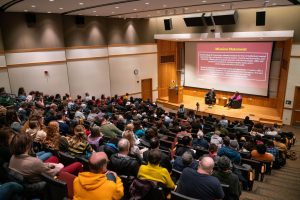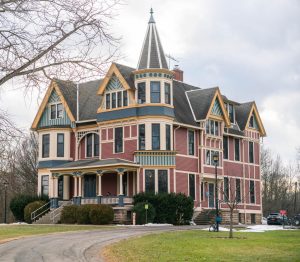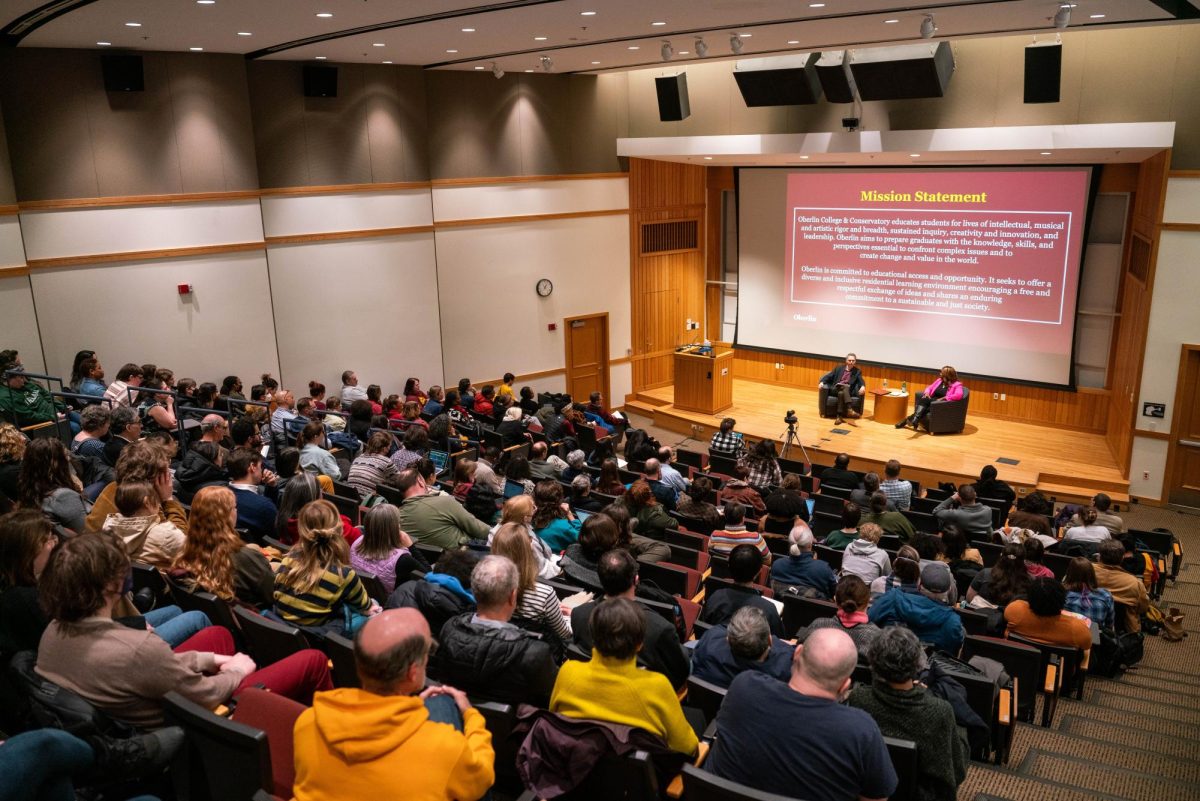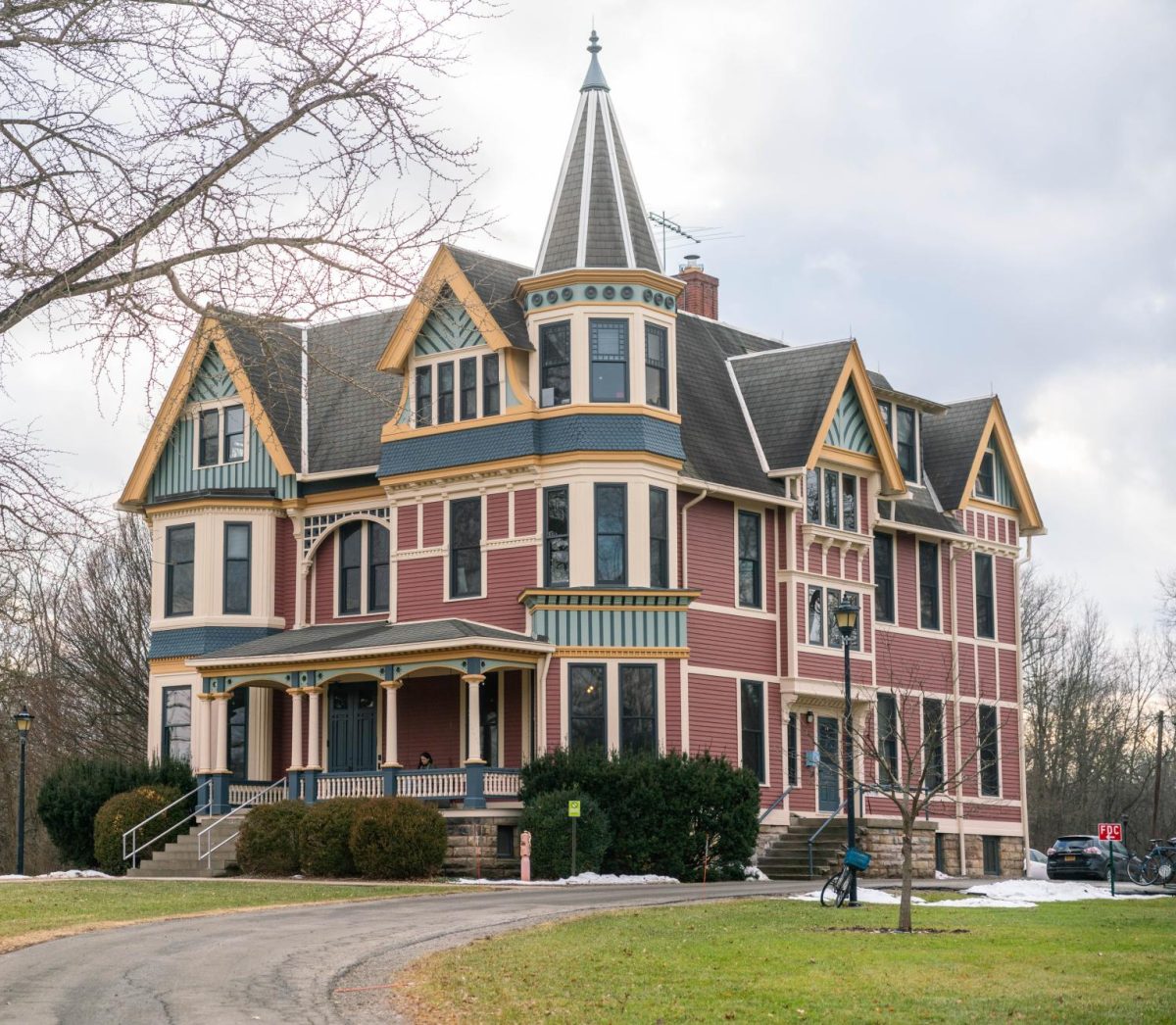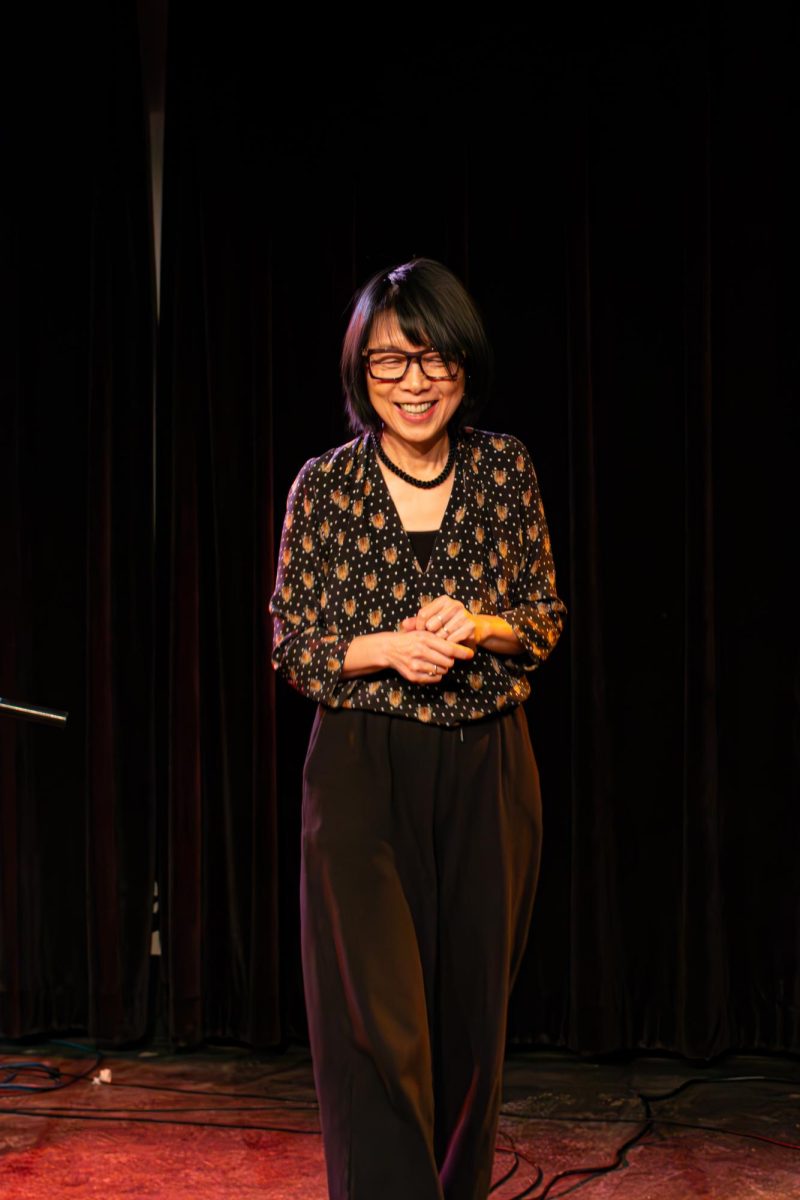Column on Church Rife With False Dichotomies
February 22, 2013
While Sean Para’s Op-ed piece “Pope’s Resignation May Lead to Reform for Aging Institution” [Oberlin Review, Feb. 15, 2013] raises important critiques of the conservatism and corruption within the governing body of the Catholic Church, Para makes several unwarranted and insensitive generalizations about Catholicism and organized religion. To be clear: I do not consider myself a part of any one organized religion, I am not Catholic and I make no defense of the Vatican’s continued condemnation of birth control and refusal to ordain female priests — not to mention the deplorable matter of clerical sex abuse. The need for reform is clear, but Para takes his argument too far, stating, “The Church and the papacy serve as only a negative force in our society,” crossing the line from well-reasoned concern into blind ideology.
There are over a billion Catholics world-wide, a seventh of the world’s population. It is easy to forget, when using a general term like “the Church,” that we are discussing a diverse, complex body of very real individuals — not merely an abstract power structure.
Take, for example, the Roman Catholic Women priests, a group of ordained female priests and bishops who claim apostolic succession within the Catholic Church. The Vatican, of course, has excommunicated all members of the RCWP, but what matters is that the members of the RCWP still consider themselves very much within the Church and care deeply about it despite the Vatican’s disapproval. The teachings of the Catholic Church are important to many people, and we cannot simply write off our fellow humans as ignorant or misguided if we want to work together to bring about reform. But Para seems to give up on reform, continuing: “Our society must move into the future without the impositions of organized religion. Let us hope that the church, as moribund as the man who leads it, will slowly fade away and allow the world to continue unfettered to a better future.” Para somehow equates the Church with all organized religion, concluding that the absolute abolishment of all organized religion is the ideal. The problems which arise from various aspects of organized religion are numerous and easily observable — the tribalism, the sectarian violence, the bigotry, the mix of church and state, etc. I make no defense of the wrongs done in the name of religion, but again, the situation is more complicated. Para sets up a false dichotomy between organized religion and social change. The Southern Christian Leadership Conference played a vital role in the organization of the Civil Rights movement, and Reverend Martin Luther King Jr. was, after all, a reverend. Bishop Desmond Tutu and the South African Council of Churches were a powerful force in the fight against Apartheid, and Liberation Theology — which first arose in the Catholic Church during the 1950s and 60s in Latin America. Their efforts have been historically and continue to be a source of inspiration for social change in Latin America and beyond.
Organized religion, per se, is not holding society back. What’s holding society back is the ideological thinking present not only in many facets of organized religion, but also within many critiques of organized religion — including Para’s. The reductionism and the insensitive blanket statements which mar Para’s otherwise spot-on critique risk alienating further the very people whose beliefs he finds destructive and perpetuate the very kind of thinking he condemns. We need to have the courage and the breadth of mind to meet the current moment in all its complexity, because we can only hope to affect real change by meeting everyone where they are, not where we want them to be.
–David Leach
Double-degree fifth-year



